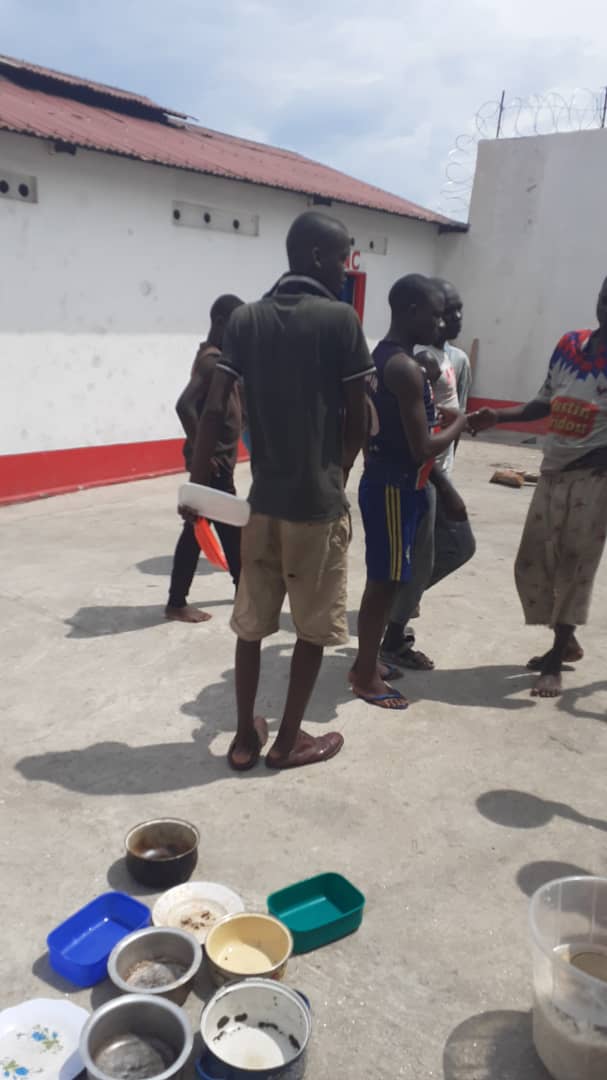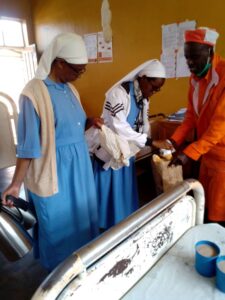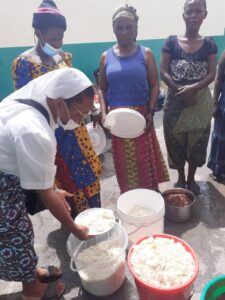
Visiting Prisoners – Sixth Corporal Work of Mercy
The Works of Mercy through the eyes of a biblical scholar
Reflections on the Works of Mercy continue, supported by the biblical scholar Carlo Miglietta, in preparation for the meeting that will start in a few days in Lucca and will feature friends and volunteers not only from Italy but also from Africa and Asia, with whom functional tools will be structured to spread the works.
The sixth Work of Corporal Mercy is “visiting prisoners”.

The biblical scholar points out to us that he who performs this work is similar to:
- God, who “does not despise his own who are prisoners” (Ps 68:34), “brings out the prisoners with joy” (Ps 67:7), “sets the prisoners free” (Ps 145:7), “brings back the prisoners of Zion” (Ps 125:1), “takes my life from prison” (Ps 141:8). Peter “narrated how the Lord had brought him out of prison” (Ac 12:17).
- Jesus, who came “to proclaim deliverance to the captives…, to set at liberty those who are oppressed” (Lk 4:18; cf. Is 61:1; 42:7; 49:9): “That is why it is written, ‘When he ascended into heaven, he took captives with him'” (Eph 4:8; cf. Ps 67:19).
- The good Samaritans, who, in the days of Ahaz, king of Judah, “set about feeding the captives; as many as were naked they clothed them and put on them garments taken from the spoils; they gave them food and drink, and anointed them; then, carrying those unfit to march on donkeys, they led them to Jericho, the city of palm trees, to their brothers. Then they returned to Samaria” (2 Chr 28:15).
The biblical scholar also reminds us that those who visit prisoners hear the Word of God
Below some excerpts:
- “You took part in the sufferings of the prisoners and joyfully accepted being stripped of your substance, knowing that you possessed better and more lasting goods” (Heb 10:34).
- “Remember the prisoners, as if you were their fellow prisoners, and those who suffer, being also in a mortal body” (Heb 13:3).
The biblical scholar leaves us at the conclusion of this work with a provocation, a question: do we know how to be “fishers of men” (Mk 1:7), identifying those who care for prisoners and proclaiming the beatitude of mercy that reads “Blessed are the merciful” (Mt 5:7)?
The Works are everyone’s, in everyone and for everyone

The Works are everyone’s, in everyone and for everyone. Spazio Spadoni is committed to strongly expressing the profound meaning enclosed in this thought, so that every ear may understand and be aware of it in doing. Universalising the Works also means cooperating in proclaiming the Good News through the concreteness of love in the many countries of the world where Spazio Spadoni already operates and where it has not yet arrived. But not only that! Also in the many peripheries of society that cry out for dignity, love, relationship and forgiveness.
Learn more about the HIC SUM project
Bibliography
![]() Carlo Miglietta – Le Opere di Misericordia
Carlo Miglietta – Le Opere di Misericordia
 Carlo Miglietta – Works of Mercy
Carlo Miglietta – Works of Mercy
 Carlo Miglietta – Oeuvres de miséricorde
Carlo Miglietta – Oeuvres de miséricorde
Read Also
Visiting the sick – Fifth Corporal Work of Mercy
Accommodation for pilgrims – Fourth Corporal Work of Mercy
Dressing the naked – Third Corporal Work of Mercy
Giving drink to the thirsty – Second Corporal Work of Mercy
Feeding the hungry – First Corporal Work of Mercy
The Works of Mercy from Brazil to Italy
